A dozen activists gathered at the Constitutional Court of Thailand yesterday to demand the decriminalization of abortion under Thai law.
The Thai Referral System for Safe Abortion (RSA), a network of pro-choice medical professionals and advocates, organized an all-day “Pro-Voice” event yesterday to push for the normalization of safe abortions as well as mark International Safe Abortion Day on September 28, which is tomorrow.
Their demonstration featured four women wrapped in white sheets and industrial ropes with signs strapped to them reading “Criminal Code 301,” the section of the law that punishes women who get abortions with three years in prison and/or a fine of up to THB6,000 (US$185).
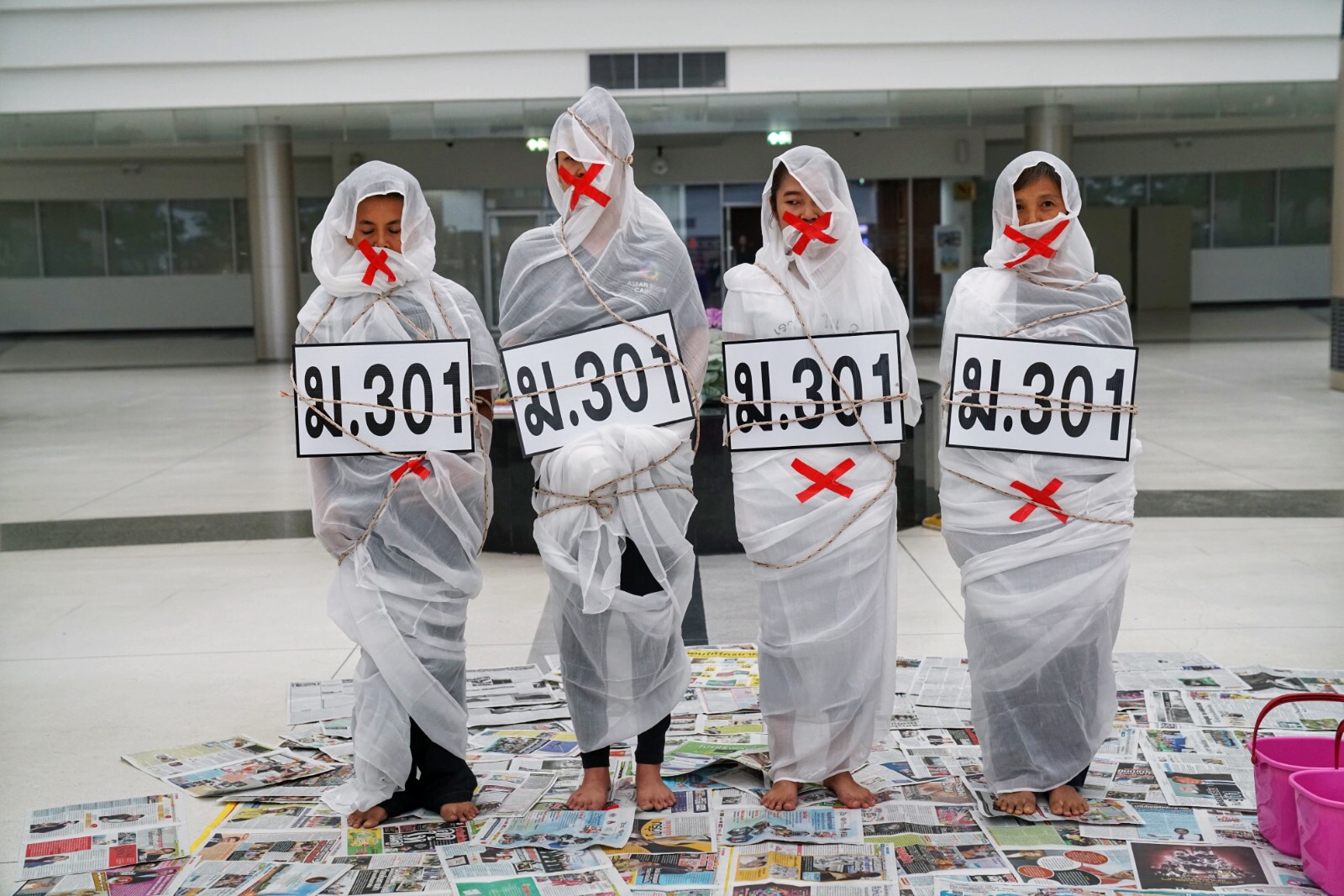
Red tape was placed over their mouths and private parts and they were soaked with red paint to symbolize blood.
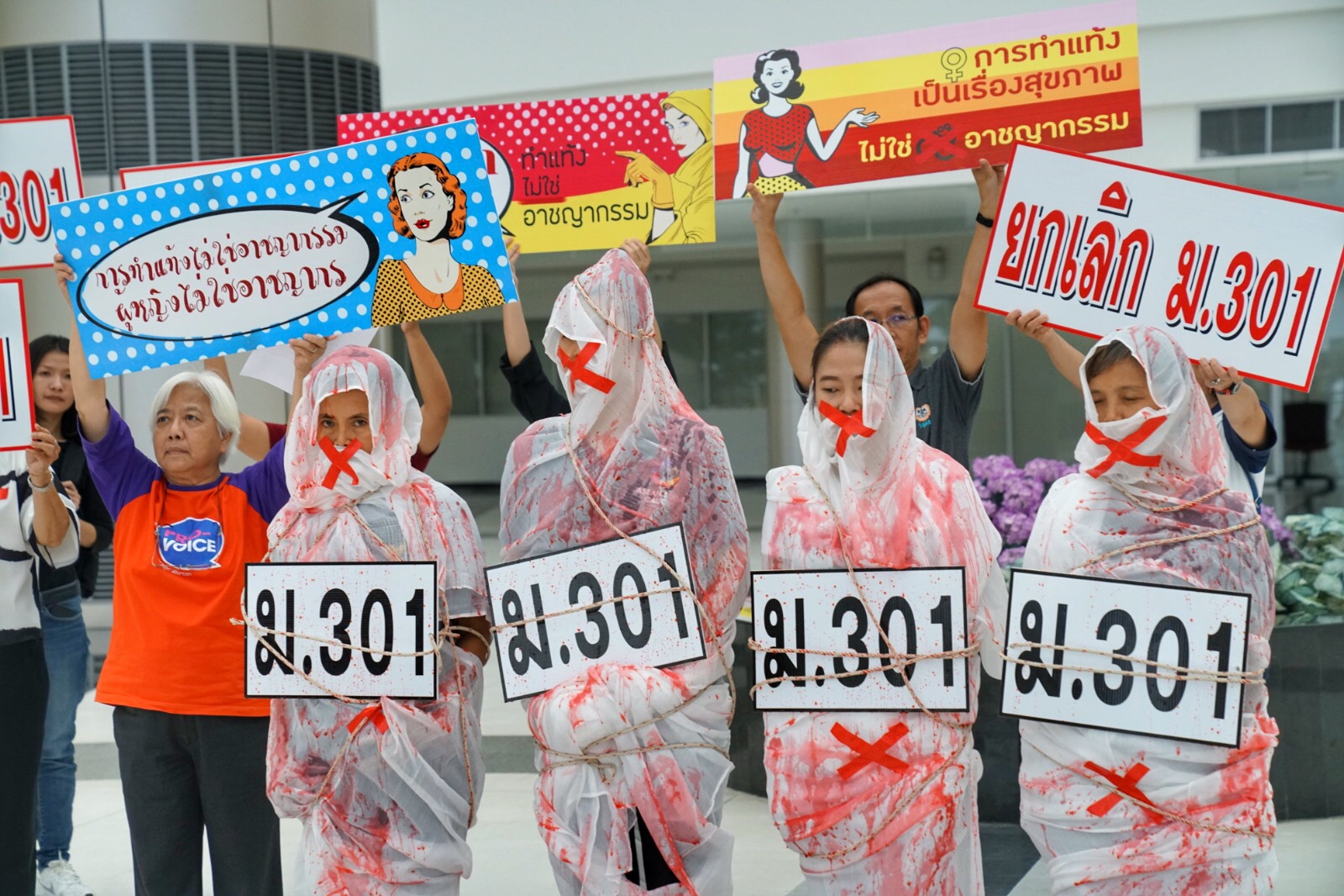
Supeecha Baotip, one of the campaigners, said that the restraints represented the oppressive grip that current laws and societal attitudes towards abortion have over women — many of whom die after getting the procedure from unauthorized clinics.
In the RSA’s view, abortion is a medical issue and it should not be criminalized. They argue that that unplanned pregnancies and abortions are going to happen, regardless of the law, so the government should be working to protect citizens instead of forcing them to turn to dangerous unlicensed practitioners.
“Every year, women from every province still die from unsafe abortions even though, with today’s advanced technologies, the procedure should no longer be dangerous,” said one of the campaigners, Dr. Kritaya Archavanitkul, a demographer at the Institute for Population and Social Research of Mahidol University.
Currently, Thai law only permits abortion in cases in which the women are sexual assaulted or the pregnancy poses serious health risks.
Despite these exceptions, nearly all of the estimated 300,000 – 400,000 abortions performed in Thailand annually are done “underground,” according to a 2014 study from the Thai Journal of Obstetrics and Gynaecology.
The results is a shocking estimated morbidity rate of 40 percent.
Meanwhile, the fatality rate is 300:100,000 abortions, compared to 1 death for 100,000 safe abortions in the developed countries.
Yes, that’s a 300 times difference.
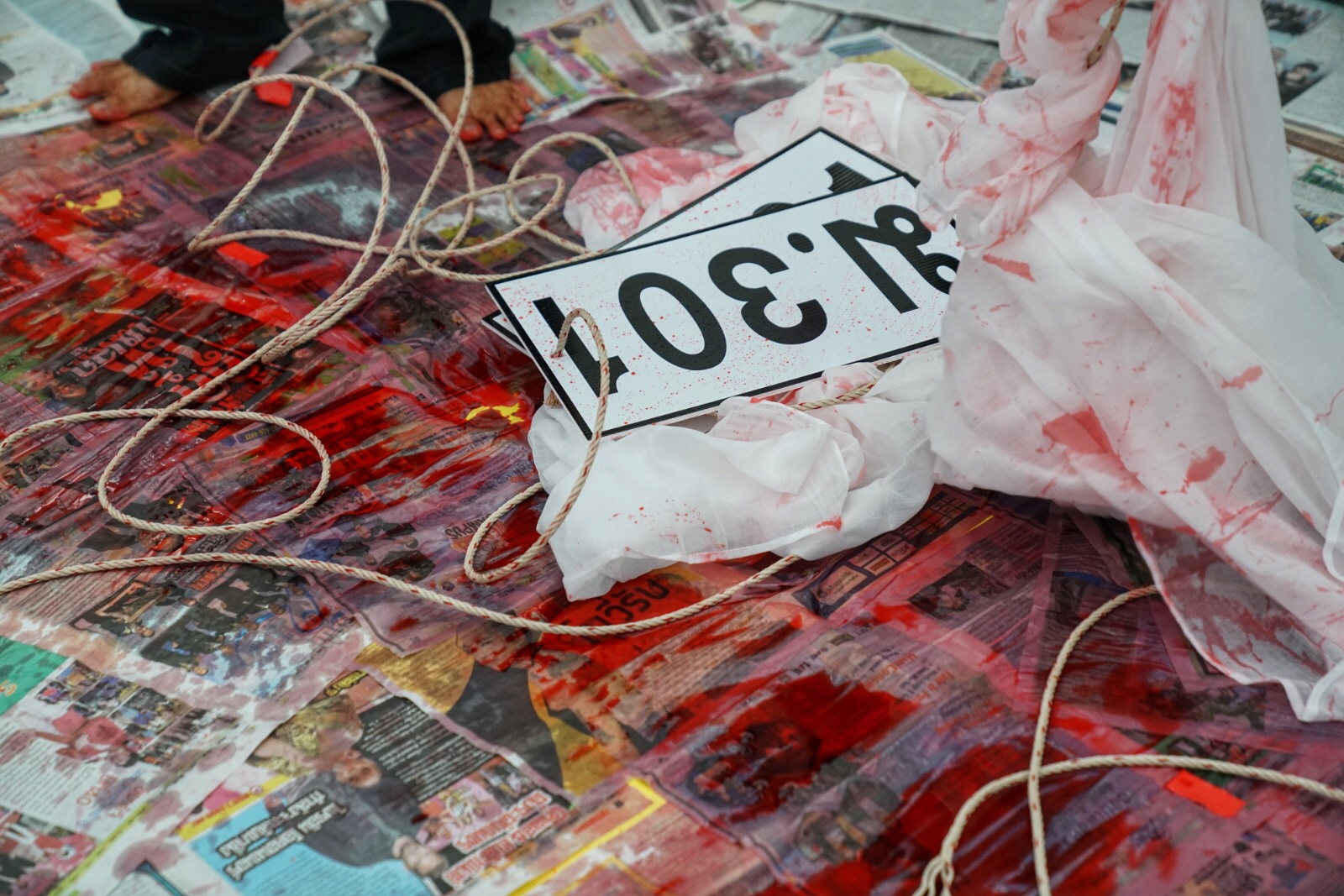
On top of the huge health risks the country’s current abortion laws pose towards women, the RSA also notes that those laws contradict multiple sections of Thailand’s constitution, including section 32 that posits “any act that violates or impedes the rights of a person shall not be permitted.”
In their view. denying a person’s right to choose and determine their own fate is taking away their basic human rights to privacy and autonomy over their own bodies.
The RSA’s goal is to portray a message once expressed by MF Fathalla, a former president of the International Federation of Gynecology and Obstetrics: “Women are not dying because of untreatable diseases. They are dying because societies have yet to make the decision that their lives are worth saving.”
International Safe Abortion Day was initiated by the Women’s Global Network for Reproductive Rights, an organization that urges all countries to rescind their anti-abortion laws in order to “acknowledge women as full citizens with human rights, whose life choices command respect and support.”
Their theme this year “Normalising Abortion: It’s part of our lives” invites women to share their personal experiences of abortion and explain the difference it has made on their lives.
The chances of Thailand’s abortion laws changing anytime in the near future seem unlikely, given the enormous social and religious stigma towards the practice, but if groups like RSA continue to fight for women’s lives and more people voice support for their cause, eventually the government will have to listen.
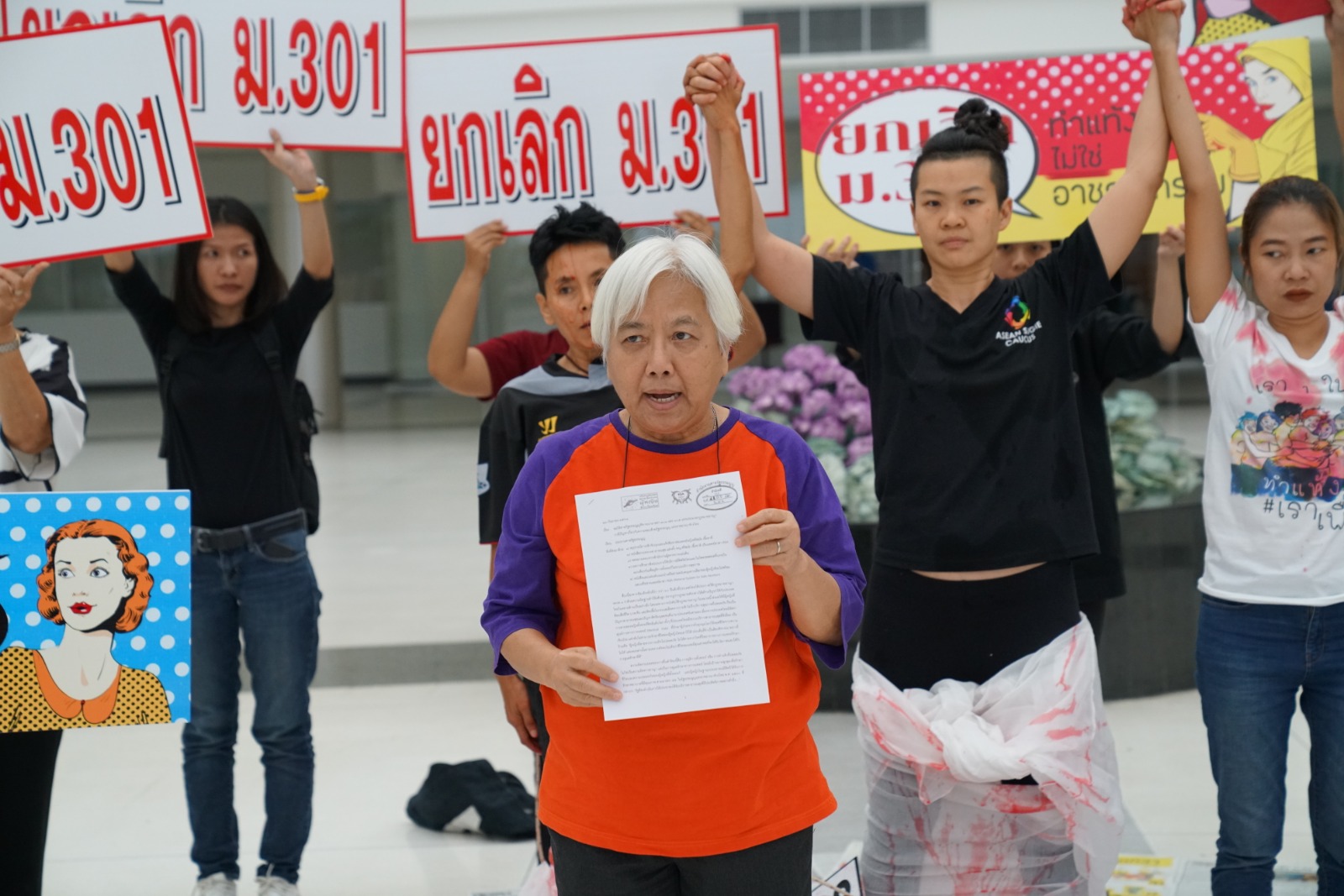
“Changing the law will be hard because policies reflect the society’s mentality — and a majority of people in Thailand still see abortion as a crime and demonize women who undergo it,” said a still-hopeful Supeecha, who vowed to keep fighting.
The stalwart campaigner said demonstrations like the one held yesterday are a vehicle to start a much-needed public conversation that will help bridge the gulf in opinion over the issue.
That, she added, is the most important step towards equality.
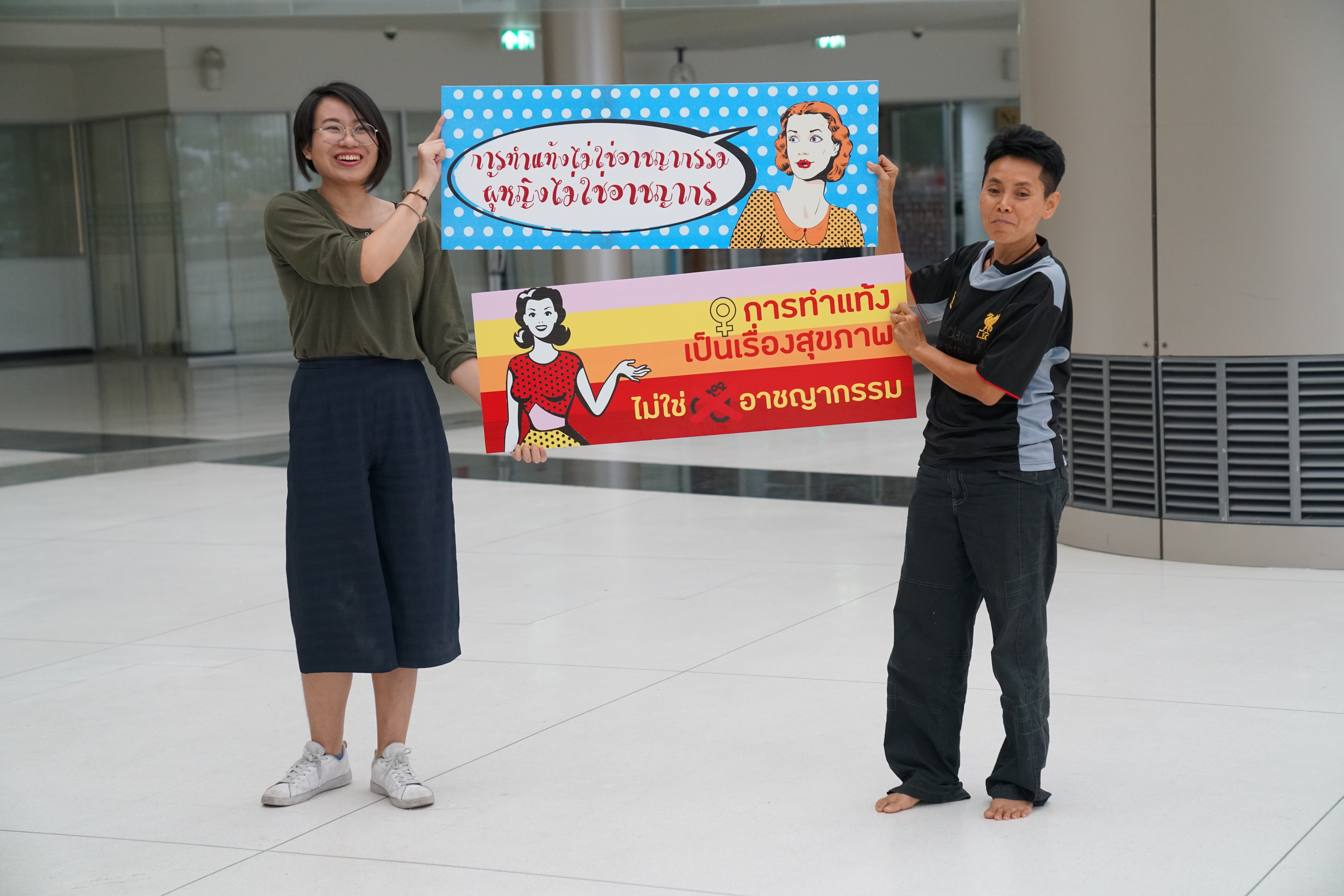
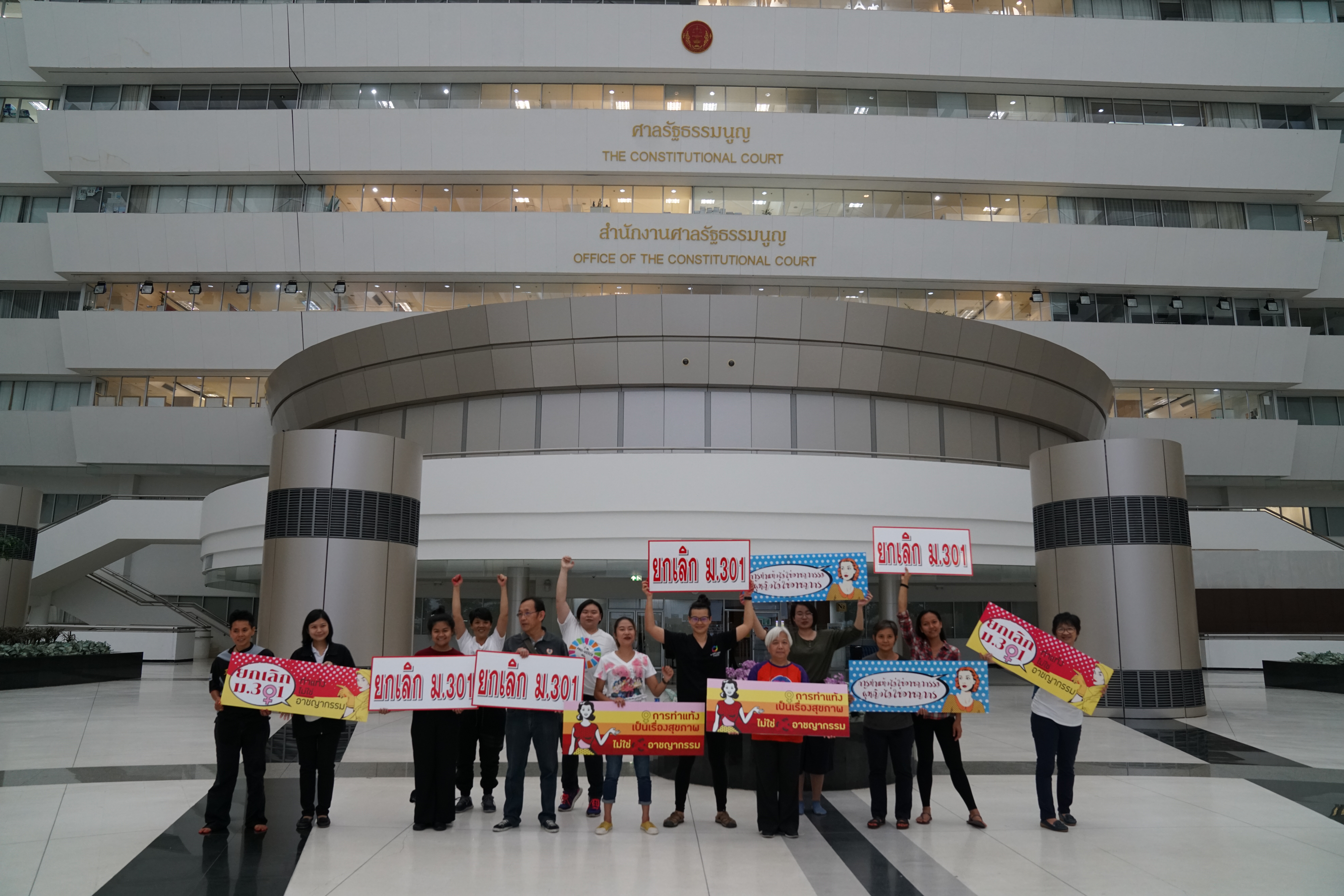
Editor’s Note: An earlier version of this story said the mortality rate of abortion in Thailand was 40 percent, when in fact, the figure refers to the morbidity rate




